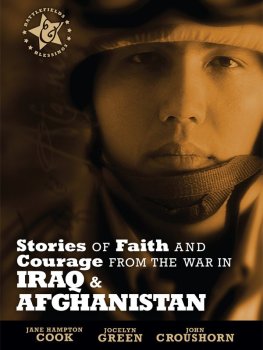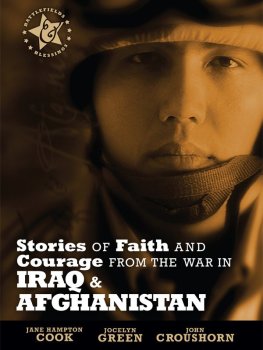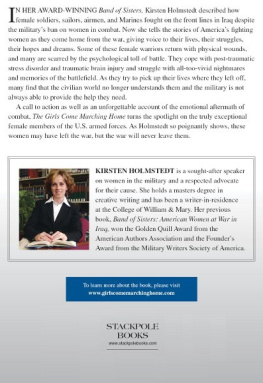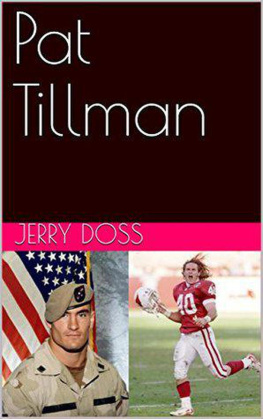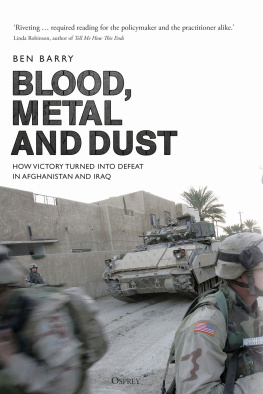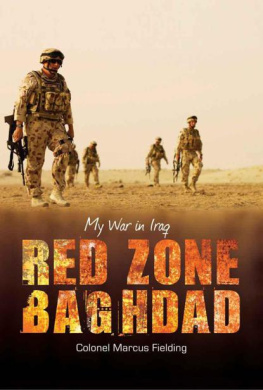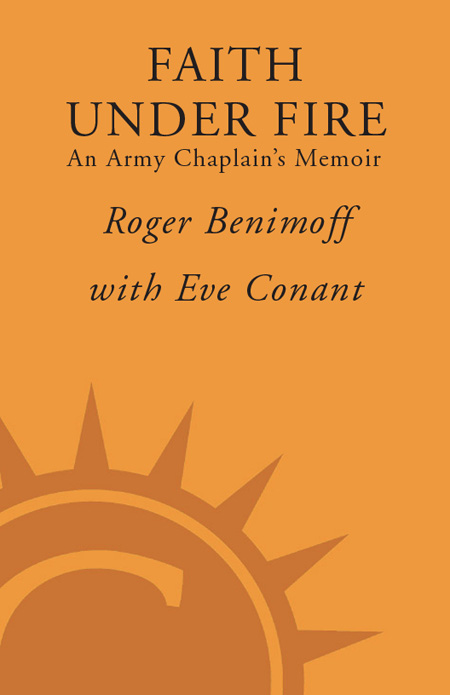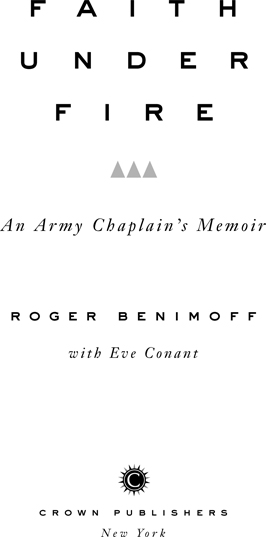To my wife, Rebekah,
and my sons,
Tyler and Blaine.
The story that follows is a work of memoir; it is a true story based on my materials and best recollections of my second deployment to Iraq and my return home. As a chaplain, it is of utmost importance that I safeguard the privacy of individuals whose lives have touched mine. Certain people who appear in the book gave me permission to use their actual names, and they are listed in the next paragraph. I have kept other individuals private by changing their names, identifying features, injuries, and circumstances. In some cases, composite characters have been created for the purpose of further disguising the identity of individuals.
People whose names and experiences remain unaltered include, Rebekah Benimoff, Tyler Benimoff, Blaine Benimoff, Colonel H.R. McMaster, Lieutenant-Colonel Christopher Hickey, Chaplain (Major) David C. Causey, Chaplain (Major) Ret. James Bixler, Major John Wilwerding, Captain Matthew Ryan Howell, Renee Howell, Chaplain (Captain) Geoffrey Bailey, First Lieutenant Maria Kimble, First Sergeant Wilfredo Serrano, Specialist Andrew Seng, Rose McIntyre, Jack Lederman, Specialist Brent Hendrix, and National Guard Specialist George Schmidt.
All scriptures that appear in the book are from the New International Version of the Bible. In some Psalms, the word LORD in the biblical text has been written as Lord to conform to style.
The views held in this book do not reflect the views of the Army or the Department of Defense.
CONTENTS
Part One
1
2
3
4
5
6
7
8
9
10
Part Two
11
12
14
15
16
17
18
19
We are all living in the unknown and it is a journey.
My heart is filled with prayer and
God is giving me a discerning spirit.
ROGER BENIMOFF
Part One

I R A Q
1

LEFT SEAT RIDE
I am excited and I am scared. I am on fire for God
Army Chaplain Roger Benimoff just before start of his second deployment to Iraq
M AYBE IT WAS just another example of how war can warp your judgment, or at least how it warped mine. But I didn't question the impossibility of leading a prayer for forty people in less than sixty seconds. Forty members of our senior command and staff had crammed into a yellow tent at our new base, Camp Sykes, a crumbling, former Iraqi airbase on the outskirts of the ancient city of Tal Afar. We were not in friendly territory.
Tucked into Iraq's most northern corner, Tal Afar was an insurgent's haven. With its dizzying labyrinth of alleyways and beehive housing blocs, the remote city was the perfect place to stockpile weapons from bordering Syria. Hidden in those alleys just 10 kilometers from us were hundreds, if not thousands, of AK-47s, rocket-propelled grenades (RPGs), improvised explosive devices, and antitank mines. Managing that arsenal was a growing army of technologically savvy Iraqi and foreign fighters who were, to put it mildly, displeased with our recent arrival.
First impressions always stick. I had one minute to assure these men and women, their metal chairs propped unevenly on the vinyl tent floor, that I was capable of being their spiritual and personal counselor for the next ten months. These were the people who made decisions that could spell life or death for the soldiers convoying outside the wire of our base and into Tal Afar. In the coming months it was likely some of these officers would be injured or killed, and we all knew it. If previous deployments were any guide, others might cave from emotional or mental stress and need to be airlifted out. There would be wives or husbands back home who would divorce them by satellite phone or e-mail. We all knew the stakes. We just didn't know who would be lucky and who wouldn't.
Chaplain, let's begin the meeting, offered Lieutenant Colonel Harrison. He was the deputy commander of our regiment, in charge of northern operations as more than six thousand soldiers, with attached units, shifted north from Baghdad to Tal Afar to crush the growing insurgency here. This had all been so hastily put together; just two weeks earlier we were settling down close to Baghdad when suddenly we were sent up North. We hadn't trained or planned for this region, and our base wasn't yet equipped for the type of military offenses that would be asked of our soldiers in the coming months.
Nor were we prepared on the spiritual level. When operations were set up at Camp Sykes, we'd have thousands of soldiers but only four chaplains, three Protestant and one Catholic. I would be the only chaplain for my squadron of a thousand soldiers. For now, I was also the acting regimental chaplain until my superior, Chaplain David Causey, arrived in two weeks.
Brave Rifles, Sir, I replied to Harrison. That was our motto in the Third Armored Cavalry. When approaching another cavalry soldier, you had to say Brave Rifles, and the other had to respond with Veterans. That dated back to 1847 when Gen. Winfield Scott, rallying the troops during the capture of Mexico City exclaimed, Brave Rifles! Veterans! You have been baptized in fire and blood and have come out steel. Sitting there in that vinyl tent that April morning, I did not suspect that in the next ten months I would also be baptized in blood. But it would be the blood of others, and I would not come out like steel.
I did know that my tongue was dry and my palms were sweating, even if the brutally hot days when soldiers joked about the dry 120-degree heat were still months away. At thirty-two, I was one of the Army's youngest chaplains, but after a short break in Fort Carson, Colorado, was starting my second tour in Iraq. I should have felt experienced, instead, I was petrified. I had already started ministering to the troops at Camp Sykesone of our soldiers had been killed near Baghdad, and one of our Bradley crews had been hit by an improvised explosive device, or IED,but I had yet to minister to our senior command. Forty officers from the regiment and subordinate squadrons, exhausted and harried, were looking to me for a momentary escape from their personal worries and the complicated logistics of getting our squadron trained up to replace the outgoing one.
There I was with sixty seconds to give my first regimental Word of the Day. I cleared my throat and pulled a wrinkled piece of paper from my chest pocket. It was a story I had copied from a fellow chaplain, a sketch about a reporter interviewing God.
If God granted 60 Minutes an interview, what would he say? When asked what surprises him most about mankind, He says it's that people are in a rush to grow up and then long to be children again; that they lose their health to make money and then lose their money to restore their health. When asked what are the most important lessons of life, he says he'd like people to learn that it takes years to build trust and only a few seconds to destroy it. That a rich person is not the one who has the most but who needs the least. That it's not enough to forgive others. People must also learn to forgive themselves.


